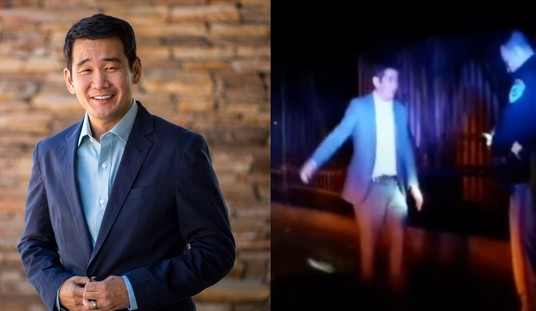I’ll give you two disclaimers here: 1) I am nowhere near as well-versed on the Fast & Furious events as folks here like Moe & Jeff, so this piece won’t help anyone understand the events behind that, and 2) I Am Not A Lawyer…and there’s a lot of lawyerly stuff here.
With that out of the way … when the Holder contempt of Congress vote first came up, I asked my attorney buddies here on RS a question: if Holder is found in criminal contempt of Congress, who is going to enforce it? It’s not likely that a representative of the Department of Justice is going to swoop in and arrest their own boss. So what happens? The consensus was – there’s not a lot that can be done. Even the Democrats pointed this out:
“While I strongly believe that the Department of Justice should fully cooperate with Congress to ensure transparency in the Fast and Furious operation, this motion lacks an enforcement mechanism to make it anything more than politically motivated,” said Rep. Heath Shuler, North Carolina Democrat.
Now that the vote has been held and AG Holder has been found in contempt, the next step would potentially be for the case to be referred to a U.S. Attorney in the District of Columbia, who under federal law would then take the case to a grand jury for prosecution. However, this is controlled by the Executive Branch (read: President Obama), and since he’s already exerted “executive privilege”, the odds of a prosecution are pretty thin. What now? Was Shuler right?
This week the Washington Times pointed out that a little-used but precedented process called “inherent contempt” could be employed. This would involve the Sergeant at Arms of the House of Representatives arresting and imprisoning Holder as means to coerce him into producing the documents requested by the House. As the WashTimes points out, a similar situation occurred back in 2007 and Nancy Pelosi suggested just that approach:
“I could have arrested Karl Rove on any given day,” Mrs. Pelosi, California Democrat, said as part of a sit-down interview with the Huffington Post.
“I’m not kidding. There’s a prison here in the Capitol. If we had spotted him in the Capitol, we could have arrested him,” she said.
Back in 2007 and 2008, there was substantial interest in Congress‘ arrest powers, with CNN even doing a segment in 2008 trying to figure out where Mr. Rove could have been jailed if the House chose to go that route.
As I mentioned, I’m no lawyer, so I can’t provide a legal scholar’s assessment of the practicality of using inherent contempt on Holder. Back in that 2007 time frame, Pejman Yousefzadeh hit this briefly here on RS and pointed to a very interesting analysis by Eugene Volokh that’s worth reading (even a non-lawyer like me can understand it). Volokh quotes from a really fascinating blog called “Balkinization”, where Marty Lederman documents the process of inherent contempt.
Congress can itself prosecute the contumacious official(s) to coerce them to comply — a power that the Supreme Court has affirmed. See Jurney v. MacCracken, 294 U.S. 125 (1935); Anderson v. Dunn, 19 U.S. (6 Wheat.) 204 (1821); see also Groppi v. Leslie, 404 U.S. 496, 499 (1972). As Justice Scalia explained in Young v. U.S. ex rel. Vuitton et Fils, S.A., 481 U.S. at 820, this legislative prosecution authority is a constitutional anomaly of sorts — a “limited power of self-defense” for Congress, permissible because “any other course ‘leads to the total annihilation of the power of the House of Representatives to guard itself from contempts, and leaves it exposed to every indignity and interruption that rudeness, caprice, or even conspiracy, may meditate against it'” (quoting Anderson).
How would such self-help work? Well, believe it or not, the Sergeant-at-Arms of the Senate or House would personally arrest the officials and detain them in the Capitol jail or guardhouse (assuming such a facility still exists). (One of my students last semester noticed this gem on the website of the current Senate Sergeant-at-Arms, Terrance Gainer: “The Sergeant at Arms is authorized to arrest and detain any person violating Senate rules, including the President of the United States.” We wondered in class: What could possibly have motivated Mr. Gainer or his staff to post that provocation?) The person would then be tried by the legislative house and, if found guilty (of civil contempt), could be detained until compliance with the subpoena or until the session of Congress ends, Anderson, 19 U.S. at 231, whichever comes first.
Congress has not invoked this authority since 1935 and, as far as I know, has never used it against a current or former government official. (The closest case was probably the contempt at issue in McGrain v. Daugherty, 273 U.S. 135 (1927), which was imposed against Mally Daugherty, a bank president and the brother of resigned and disgraced Attorney General Harry Daugherty, who Congress was investigating in connection with the Teapot Dome scandal.)
Thus, this option is unlikely . . . but not inconceivable, if Congress is willing to break relatively new ground, and to conduct a contempt trial.
I’d say “unlikely” is an understatement. Given the relative timidity of our GOP congressional leadership, the odds of going to this extreme seem a lot longer than me winning the Powerball drawing tonight.
Also, it doesn’t seem like a clear-cut case of simply throwing Holder into a dungeon in the basement of the Capitol. There is a very thorough overview of the topic of inherent contempt in this document (page 11), published by the Congressional Research Service. It states
In comparison with the other types of contempt proceedings, inherent contempt has the distinction of not requiring the cooperation or assistance of either the executive or judicial branches. The House or Senate can, on its own, conduct summary proceedings and cite the offender for contempt. Furthermore, although the contemnor can seek judicial review by means of a petition for a writ of habeas corpus, the scope of such review may be relatively limited, compared to the plenary review accorded by the courts in cases of conviction under the criminal contempt statute.
There are also certain limitations on the inherent contempt process. Although the contemnor can be incarcerated until he agrees to comply with the subpoena, imprisonment may not extend beyond the end of the current session of Congress. Moreover, inherent contempt has been described as “unseemly,” cumbersome, time-consuming, and relatively ineffective, especially for a modern Congress with a heavy legislative workload that would be interrupted by a trial at the bar. Because of these drawbacks, the inherent contempt process has not been used by either body since 1935.
In reading this very legalese-laden document, it seems that conducting even an inherent contempt process may be difficult. A discussion of the implications of the assertion of executive privilege begins on p.34 of the CRS doc:
While it is true that the President can immunize persons from criminal prosecution, it does not appear that he has authority to immunize a witness from a congressional inherent contempt proceeding. Arguably, an inherent contempt proceeding takes place wholly outside the criminal code, is not subject to executive execution of the laws and prosecutorial discretion, and thus, appears completely beyond the reach of the executive branch. Furthermore, as previously indicated, inherent contempt, unlike criminal contempt, is not intended to punish, but rather to coerce compliance with a congressional directive. Thus, a finding of inherent contempt against an executive branch official does not appear to be subject to the President’s Pardon power—as an inherent contempt arguably is not an “offense against the United States,” but rather is an offense against a house of Congress. Likewise, it appears that the same arguments would be applicable to a potential civil enforcement by Congress.
The conclusion appears to be that inherent contempt would indeed be possible in the Holder case, but the disadvantages pointed out in the CRS doc would appear to be a pretty significant hurdle.
It was somewhat entertaining to see/hear a plethora of lefties promoting the idea of inherent contempt back in 2007…a quick search on the topic on Google reveals many discussions on the t0pic back then.
So the discussion of “inherent contempt” against Eric Holder is a fascinating exercise in “what if”, but its use is, in my opinion, little more than wishful thinking by some on the Right.












Join the conversation as a VIP Member